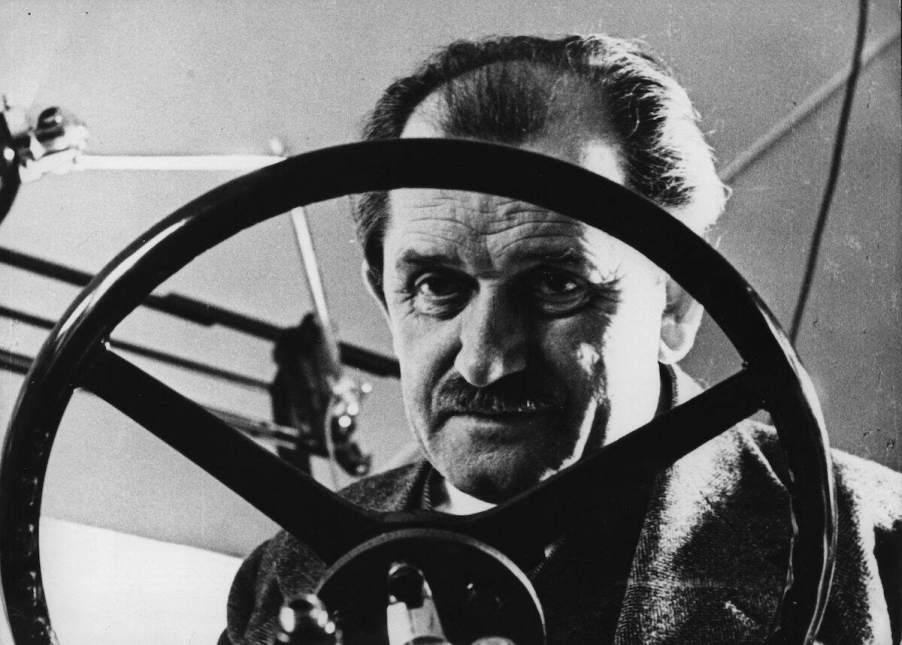
Who Built the First Hybrid Car?
The world of historic cars holds many secrets and stories, including that of the first hybrid car. The hybrid vehicle has become a fixture in the modern automotive industry, with more carmakers investing in electric technology and eco-friendly design. But have you ever wondered where it all began? Who built the first hybrid car?
The early history of electric vehicles
Electric vehicles’ history can be traced back to the 19th century, long before the advent of gasoline-powered cars. Car and Driver reports that English inventor Thomas Parker designed the first practical electric car in 1884. It packed a high-capacity rechargeable battery and transported passengers in England. Electric vehicle gained popularity throughout the late 1800s and early 1900s, with sales peaking around 1910.
However, the rise of gas-powered cars soon led to EVs’ decline. Gasoline engines were cheaper and more efficient than electric motors, and the discovery of large petroleum reserves made gasoline widely available and affordable. As a result, electric cars became niche products, largely limited to specialized uses such as golf carts and forklifts.
Despite this decline, electric vehicles persisted as a technology, and efforts to improve them continued throughout the 20th century. The 1990s saw the introduction of the first modern electric cars, such as the General Motors EV1 and Toyota RAV4 EV. Although these early models weren’t widely successful commercially, they paved the way for the development of hybrid and plug-in hybrid vehicles, which combine the benefits of electric power and the convenience of gas engines.
Ferdinand Porsche built the first hybrid car

The Lohner-Porsche Mixte is widely regarded as the world’s first hybrid car, Energy.gov states. Legendary automotive engineer Ferdinand Porsche built the vehicle and introduced it in 1899. Mr. Porsche, who later established the Porsche car company, worked as a consultant for the Lohner company in Vienna, which produced luxury electric cars at the turn of the 20th century.
The Mixte, meaning “mixed” in French, combined a gasoline engine with electric motors to achieve improved fuel efficiency and performance. This hybrid car featured an innovative design with electric motors mounted in the front wheel hubs, allowing for all-wheel drive and regenerative braking. The Mixte was also notable for its sleek, sporty appearance, making it a popular choice among wealthy European consumers.
Despite its groundbreaking design, the Lohner-Porsche Mixte couldn’t compete with the growing popularity of gasoline-powered cars, and the Mixte’s production ceased in 1906. However, Porsche’s innovative engineering influenced the development of hybrid and electric vehicles for generations to come.
The Toyota Prius was the first mass-produced hybrid car
The first mass-produced hybrid car, the Toyota Prius, was introduced in Japan in 1997 and arrived in the United States in 2000. It quickly became popular among eco-conscious drivers and solidified Toyota’s position as a leader in the green-car market.
The first-generation Prius had by a 1.5-liter four-cylinder engine paired with an electric motor. It achieved an impressive 41 mpg in the city and 44 mpg on the highway. Released in 2003, the second-generation Prius boasted even better fuel economy, with an EPA rating of 60 mpg in the city and 51 mpg on the highway.
The Prius also incorporated several new technologies, including regenerative braking, which captured the energy that would otherwise be lost during braking and used it to recharge the car’s batteries. The vehicle’s aerodynamic design and lightweight construction also contributed to its impressive fuel economy.
Today, the Prius remains one of the most recognizable hybrid cars. Toyota has expanded its hybrid lineup to include many other models, including the Camry Hybrid midsize sedan and RAV4 Hybrid compact crossover SUV.


